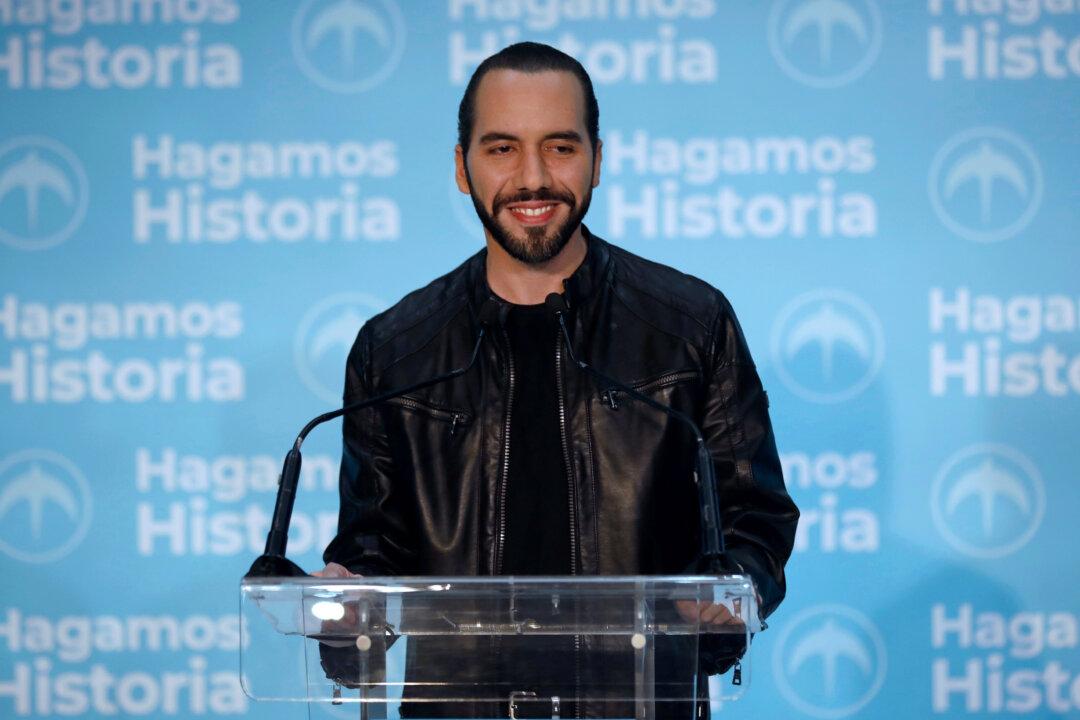SAN SALVADOR—Salvadoran President-elect Nayib Bukele will assess whether the country should maintain diplomatic relations with China, a member of his team said on Feb. 7, less than a year after the outgoing government broke ties with Taiwan.
During the campaign, Bukele, who emerged victorious at the polls as an outsider candidate on Sunday, was critical of the benefits that El Salvador received after establishing diplomatic relations with China.





